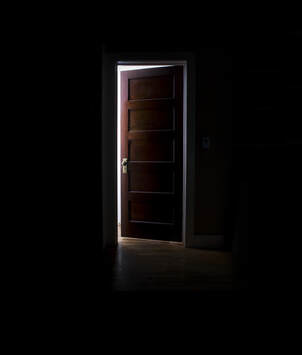| If someone enters your home, rifles through your files, and takes information about you that you didn’t give them permission to have, they’re guilty of several crimes — burglary, of course, but also various forms of invasion of privacy protected by amendments to the U. S. Constitution. If my company wants to know what another firm is doing, it can easily monitor the competitor’s advertising and marketing messages, review its news releases and product announcements, and weigh analysts’ predictions, all of which is considered to be published, publicly-available information. If, however, my company penetrates another business’s computer system and takes information from its servers, that’s considered to be corporate espionage, which is illegal. Yet, if a total stranger digs into your family’s history and makes a list of births, deaths, marriages, and divorces, Ancestry.com thinks that’s perfectly OK. It’s not. PERSONAL INFORMATION ISN’T PUBLIC INFORMATION Obtaining “vital records” in almost every state and/or municipality requires a |
direct connection to the people who appear in those records. You must either be a direct relative or a member of law enforcement or an officer of the court who has a warrant to obtain that information. In some jurisdictions, not even stepparents or stepchildren are granted access.
Ancestry, however, claims that all its records were obtained from public sources and are, therefore, public records. They’re not. At least, not in the sense that they’re available to the general public. That’s why state, county, and city clerks require requestors to fill out forms that may or may not qualify them as being entitled to the data. That’s why it was necessary to create and pass the Freedom of Information Act because not every bit of public business is meant for general public consumption.
INTERNET VS. PHYSICAL PRIVACY
Given the low bar many people have set about their personal privacy — by posting information on social media sites and permitting commercial enterprises to share it, sell it, and use it to their advantage — this might not seem important. But think about it in a more direct way.
Imagine arriving at your front door and finding it ajar. Consider the sense of alarm or discomfort you’re likely to feel as you enter (cautiously) to discover that all your drawers and cabinets seem to have been opened and that nothing’s in the same place or order. Anxiety may mount when you realize that nothing is missing, but it’s clear that someone went through your things. That’s when “why” might evolve to “what’s next?”
Did the invader get account numbers? Take photos of your most private photographs? Get a look at the letters from your relative in prison — the one no one knows you’re connected to?
THERE SHOULD BE NO PRICE ON PRIVACY
According to Ancestry, no living person’s information should be available. It is. They also insist that data about the living and the dead can be hidden at the request of the living person or the deceased’s relatives. To do that, though, requires an Ancestry account, and that requires payment, and that’s illegal, too, in many jurisdictions; like being able to enter a sweepstakes without being required to make a purchase.
In my case, a “curious” fan of pop music and of my father (a rock ’n’ roll DJ) chronicled every birth, death, marriage, and divorce, going back to the 19th Century. The fan is not a relative, either by marriage or birth. He’s simply nosy, and Ancestry made the scent easy to follow.
To those of us who are actually in the family, it had all the hallmarks of being violated. It gave a stranger information that he didn’t need (and wasn’t entitled) to have. The fact that some of Ancestry’s data is wrong only compounds the potential for problems if the data’s mis-used or considered to be accurate. While, at the moment, nothing’s happened, the potential for harm still exists. And that begs the question, “What’s next?”
Ancestry may be a voyeur’s dream come true. But it shouldn’t be your nightmare.
Ancestry, however, claims that all its records were obtained from public sources and are, therefore, public records. They’re not. At least, not in the sense that they’re available to the general public. That’s why state, county, and city clerks require requestors to fill out forms that may or may not qualify them as being entitled to the data. That’s why it was necessary to create and pass the Freedom of Information Act because not every bit of public business is meant for general public consumption.
INTERNET VS. PHYSICAL PRIVACY
Given the low bar many people have set about their personal privacy — by posting information on social media sites and permitting commercial enterprises to share it, sell it, and use it to their advantage — this might not seem important. But think about it in a more direct way.
Imagine arriving at your front door and finding it ajar. Consider the sense of alarm or discomfort you’re likely to feel as you enter (cautiously) to discover that all your drawers and cabinets seem to have been opened and that nothing’s in the same place or order. Anxiety may mount when you realize that nothing is missing, but it’s clear that someone went through your things. That’s when “why” might evolve to “what’s next?”
Did the invader get account numbers? Take photos of your most private photographs? Get a look at the letters from your relative in prison — the one no one knows you’re connected to?
THERE SHOULD BE NO PRICE ON PRIVACY
According to Ancestry, no living person’s information should be available. It is. They also insist that data about the living and the dead can be hidden at the request of the living person or the deceased’s relatives. To do that, though, requires an Ancestry account, and that requires payment, and that’s illegal, too, in many jurisdictions; like being able to enter a sweepstakes without being required to make a purchase.
In my case, a “curious” fan of pop music and of my father (a rock ’n’ roll DJ) chronicled every birth, death, marriage, and divorce, going back to the 19th Century. The fan is not a relative, either by marriage or birth. He’s simply nosy, and Ancestry made the scent easy to follow.
To those of us who are actually in the family, it had all the hallmarks of being violated. It gave a stranger information that he didn’t need (and wasn’t entitled) to have. The fact that some of Ancestry’s data is wrong only compounds the potential for problems if the data’s mis-used or considered to be accurate. While, at the moment, nothing’s happened, the potential for harm still exists. And that begs the question, “What’s next?”
Ancestry may be a voyeur’s dream come true. But it shouldn’t be your nightmare.



 RSS Feed
RSS Feed